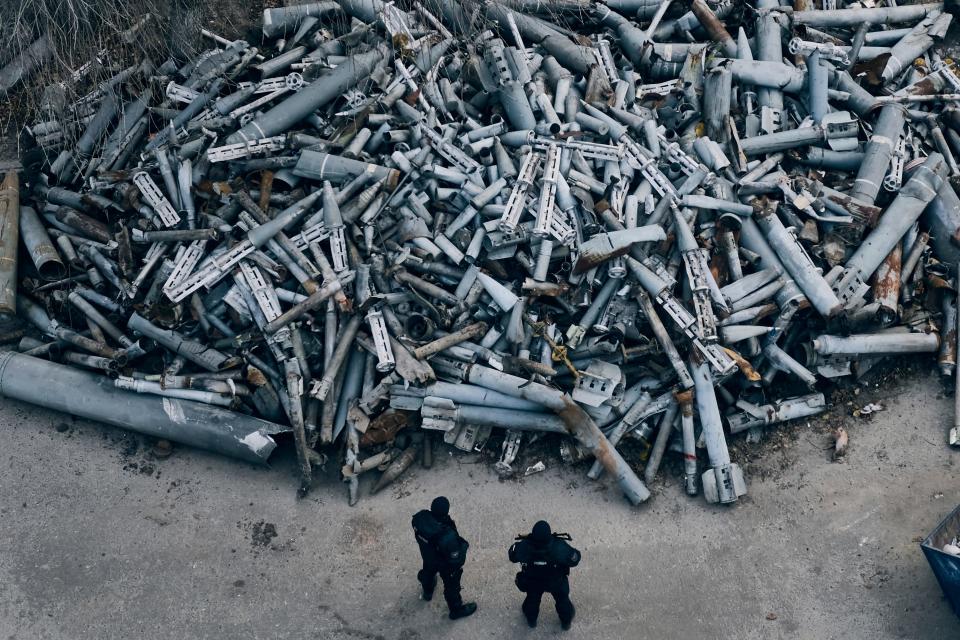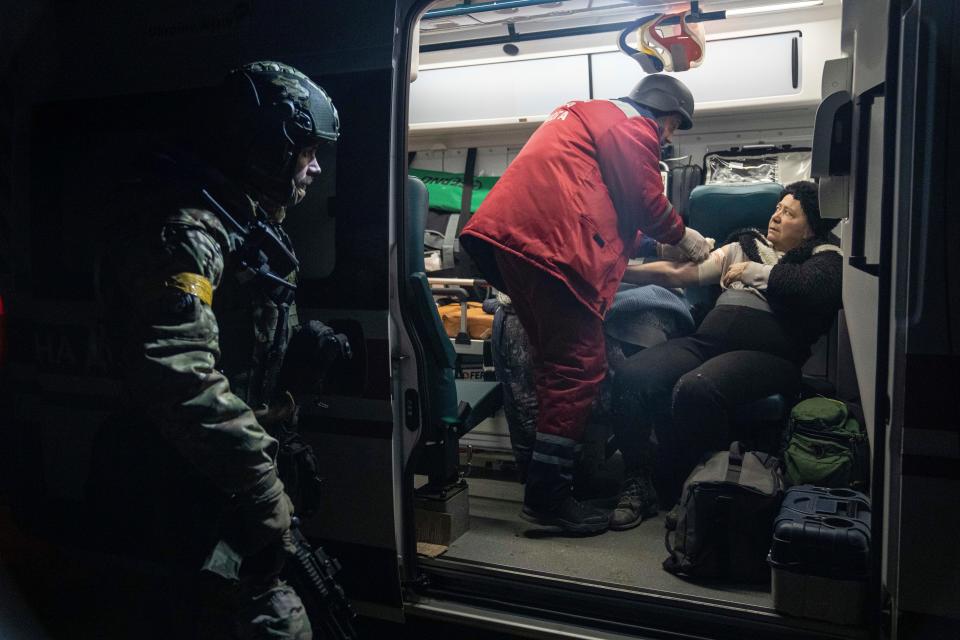Only 25% of Russians support war, poll shows; Ukraine wants price cap on Russian oil cut in half: Live updates
The Kremlin's internal polling shows only 25% of Russians favor continuing the war in Ukraine and 55% support peace talks, an independent Russian media outlet says.
Meduza says it obtained access to the survey conducted last month by the Russian Federal Protective Service. The results are markedly different from a July survey that showed 57% of Russians favored the war.
Denis Volkov, director of the independent sociological institute Levada Center in Moscow, said the share of Russians favoring peace talks and rejecting the war began growing rapidly with the September "partial mobilization" draft that added 300,000 soldiers.
"This is sheer reluctance to take part in the war personally," Volkov told Meduza. "Now the risks are greater, and people want to start the talks."
The British Defense Ministry said the results of the FPS poll were consistent with one conducted in October, adding: "With Russia unlikely to achieve major battlefield successes in the next several months, maintaining even tacit approval of the war amongst the population is likely to be increasingly difficult for the Kremlin.''

Other developments:
►Ukrainian President Volodymyr Zelenskyy exhorted his fellow citizens to help each other more than ever through what's certain to be a harsh winter, saying in his nightly video address Sunday, "To endure this winter is to defend everything.''
►The World Bank's estimate of how much it will cost to rebuild the Ukrainian infrastructure after the war has skyrocketed from $367 billion in June to between $527 billion and $632 billion today.
RUSSIA REJECTS $60 CAP:West could be cut off from Russian oil, but has been shrinking purchases for months
Russia calls for ban on oil price caps
A top Russian official called Sunday for a global ban on oil price caps, one day before a $60 per barrel purchase cap on Russian oil announced by the European Union and U.S. goes into effect.
Deputy Prime Minister Alexander Novak said Russia would trim production rather than sell under the cap, even though Russian crude has already fallen to near $60 per barrel.
"We will sell oil and oil products to those countries that will work with us on market conditions," Novak said. He said the limit being imposed by the U.S. and much of Europe "runs counter to all the rules of the World Trade Organization."
Zelenskyy, on the other hand, said the cap was too high, urging adoption of a $30 cap. He said the $60-per-barrel level would still allow Russia to earn $100 billion in revenues per year.
Russia has been adding tankers to its shipping fleet in hopes of selling more oil to China, India and other nations since Europe has vastly cut back on pipeline purchases. But Western insurers are banned from insuring cargos not being traded under the cap, adding to Russia's export woes.
Mikhail Ulyanov, Russia's representative to international organizations in Vienna, Austria, tweeted that Europe will be forced to live without Russian oil.
"Very soon the #EU will blame #Russia for using oil as a weapon," Ulyanov said.

Blinken calls Russia's war strategy 'barbaric,' says sanctions are working
Secretary of State Antony Blinken called the Russian assault on Ukraine's energy infrastructure ahead of winter "barbaric'' and said the U.S. is trying to supply the parts necessary to restore it.
In a CNN interview Sunday, Blinken also said the Biden administration is working with Congress on legislation that would label Russia a state sponsor of terrorism while avoiding some of the unintended consequences such a designation could bring.
And although the numerous sanctions the U.S. and its allies have imposed on Russia haven't deterred the Kremlin's aggression toward Ukraine, Blinken said they're having an impact. Specifically, he said the punitive measures are curtailing Russia's ability to replace weapons and modernize its economy.
"Every single day that goes by with these sanctions in place the burden on Russia gets heavier and heavier, its ability to prosecute these kinds of wars gets weaker and weaker,'' Blinken said.
US intelligence chief optimistic about Ukraine's chances after winter lull
Battlefield action was expected to diminish in Ukraine as winter approached. And indeed, the head of U.S. intelligence says the agency has detected "a reduced tempo'' in the conflict, with much of the fighting focused around the city of Bakhmut and the Donetsk province in the east.
So what happens next? Director of National Intelligence Avril Haines said both sides figure to use the slowdown to regroup and resupply in preparation for renewed hostilities in the spring.
And she believes Ukraine will be in better position to launch a counteroffensive than the invading forces will be to repel it.
''We actually have a fair amount of skepticism as to whether or not the Russians will be, in fact, prepared to do that,'' Haines told NBC News' Andrea Mitchell in an extended interview. "And I think most optimistically for the Ukrainians in that time frame.''
Kherson still being battered despite retreat of Russian troops
Russian forces fled the southern city of Kherson last month in a much-ballyhooed victory for Ukraine, but the region continues to be hammered by Russian shelling. Power outages are frequent, and Kherson regional Gov. Yaroslav Yanushkevich said evacuations of civilians stuck in Russian-held territory outside the city would resume temporarily.
Russian forces moved to the Dnieper River's eastern bank last month. Yanushkevich said a ban on crossing the waterway would be lifted during daylight hours for Ukrainian citizens who "did not have time to leave the temporarily occupied territory.” His announcement cited a “possible intensification of hostilities in this area.”
Kherson is one of four regions that Russian leader Vladimir Putin illegally annexed in September and vowed to defend as Russian territory. Repeated bombings knocked out power to much of Kherson on Thursday, but Yanushkevich said by Sunday service had been restored to 85% of customers.
Contributing: The Associated Press
This article originally appeared on USA TODAY: Ukraine live updates: Only 25% of Russians back Ukraine war, poll says

 Yahoo Movies
Yahoo Movies 